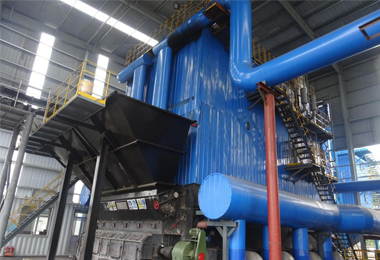
Nov . 22, 2024 05:17 Back to list
industrial steam boiler efficiency
Understanding Industrial Steam Boiler Efficiency
Industrial steam boilers play a pivotal role in various industrial processes, providing the necessary steam for heating, power generation, and other applications. The efficiency of these boilers is crucial, as it directly impacts operational costs, environmental emissions, and overall productivity. In this article, we delve into the concept of boiler efficiency, factors influencing it, and strategies for improvement.
What is Boiler Efficiency?
Boiler efficiency is defined as the ratio of useful energy output to the energy input, expressed as a percentage. Essentially, it indicates how effectively a boiler converts fuel into steam. A higher efficiency rating means that more of the fuel's energy is being utilized, resulting in lower fuel costs and reduced emissions of greenhouse gases and pollutants.
The efficiency of industrial steam boilers can vary significantly. Traditional fire-tube boilers may offer efficiencies of around 80-85%, while modern condensing boilers can achieve efficiencies of 90% or higher. The specific efficiency of a boiler depends on multiple factors, including design, operating conditions, and maintenance practices.
Factors Affecting Boiler Efficiency
1. Fuels Used The type of fuel employed in the boiler significantly influences efficiency. Natural gas, for instance, tends to burn cleaner and more efficiently than coal or oil. The moisture content and chemical composition of the fuel also matter, as fuels with high moisture content will require additional energy to evaporate that moisture.
2. Operational Practices The way a boiler is operated can greatly affect its efficiency. Factors such as load variation, startup and shutdown procedures, and the maintenance schedule can impact overall performance. For instance, running a boiler at optimal load will enhance its efficiency, while frequent starts and stops can lead to energy losses.
3. Heat Recovery Systems Implementing heat recovery systems, such as economizers, can significantly boost boiler efficiency. These systems capture waste heat from flue gases and utilize it to preheat incoming feed water, thus reducing the overall fuel requirement for steam production.
4. Insulation and Heat Loss The design and insulation of the boiler itself play a crucial role in efficiency. Poorly insulated boilers can lead to significant heat loss, forcing the boiler to work harder to maintain output levels. Upgrading insulation materials and ensuring proper sealing can reduce heat loss and improve overall efficiency.
industrial steam boiler efficiency

5. Water Quality The quality of water used in the boiler impacts efficiency as well. Poor-quality water can lead to scaling and corrosion, reducing heat transfer efficiency. Regular water treatment and maintenance are essential to maintain optimal operating conditions.
Strategies for Improving Boiler Efficiency
1. Regular Maintenance Implementing a routine maintenance schedule ensures that boilers operate at peak efficiency. Regular inspections and servicing can help identify and rectify issues that may hinder performance.
2. Upgrading Equipment Older boilers may benefit from upgrades or retrofitting with advanced technologies, such as programmable controls or additional heat recovery systems. Investing in new, high-efficiency boilers can also provide substantial long-term savings.
3. Training Personnel Training staff on proper boiler operation and maintenance plays a vital role in enhancing efficiency. Well-informed personnel are better equipped to optimize processes and identify potential inefficiencies.
4. Energy Audits Conducting energy audits can help identify areas for improvement. These assessments can pinpoint inefficiencies and propose strategies tailored to specific operational conditions.
5. Adopting Sustainable Practices Emphasizing sustainability can lead to efficiency gains. This includes exploring alternative energy sources, such as biomass or solar-assisted technologies, which can complement existing systems and offer cost-saving benefits.
Conclusion
Industrial steam boiler efficiency is a multifaceted topic, influenced by various operational and environmental factors. Understanding and improving this efficiency is crucial for reducing operational costs and environmental impact. By focusing on proper maintenance, equipment upgrades, and employee training, industries can optimize their steam boiler operations, contributing to a more sustainable future. Through continuous innovation and a commitment to best practices, organizations can navigate the challenges of energy consumption while maximizing productivity and efficiency in their steam production processes.
-
High-Efficiency Commercial Oil Fired Steam Boiler for Industry
NewsJul.30,2025
-
High-Efficiency Biomass Fired Thermal Oil Boiler Solutions
NewsJul.30,2025
-
High Efficiency Gas Fired Thermal Oil Boiler for Industrial Heating
NewsJul.29,2025
-
High-Efficiency Gas Fired Hot Water Boiler for Sale – Reliable & Affordable
NewsJul.29,2025
-
High Efficiency Biomass Fired Hot Water Boiler for Industrial and Commercial Use
NewsJul.29,2025
-
High-Efficiency Biomass Fired Hot Water Boiler for Industrial Use
NewsJul.28,2025
Related PRODUCTS






















